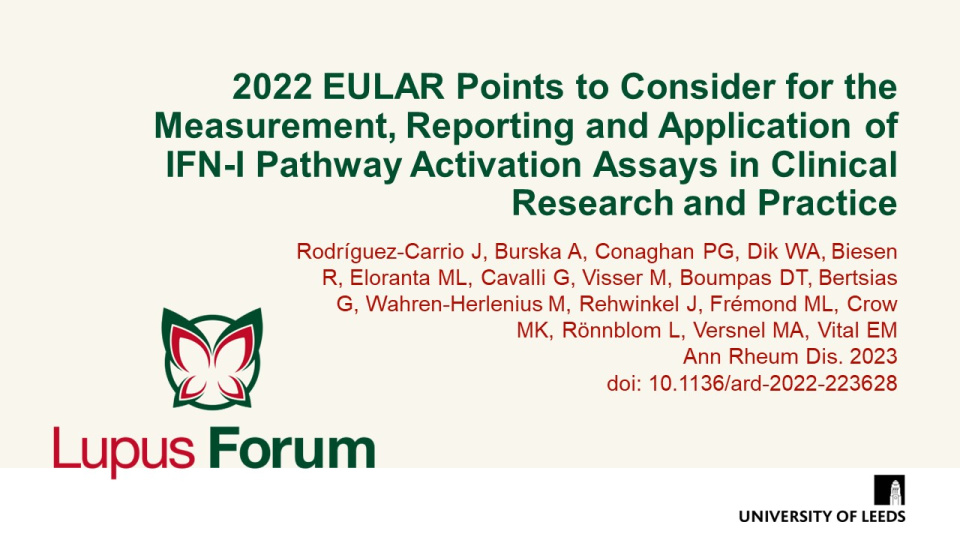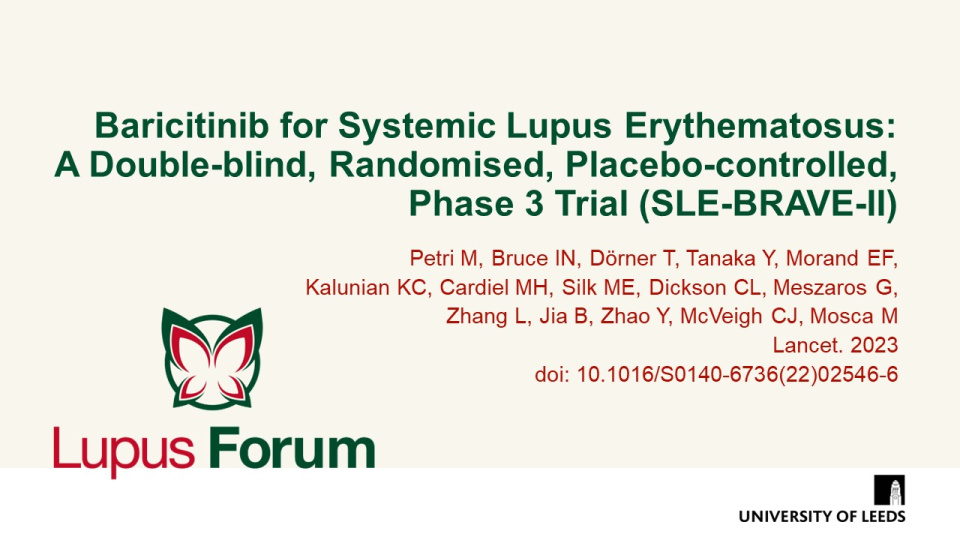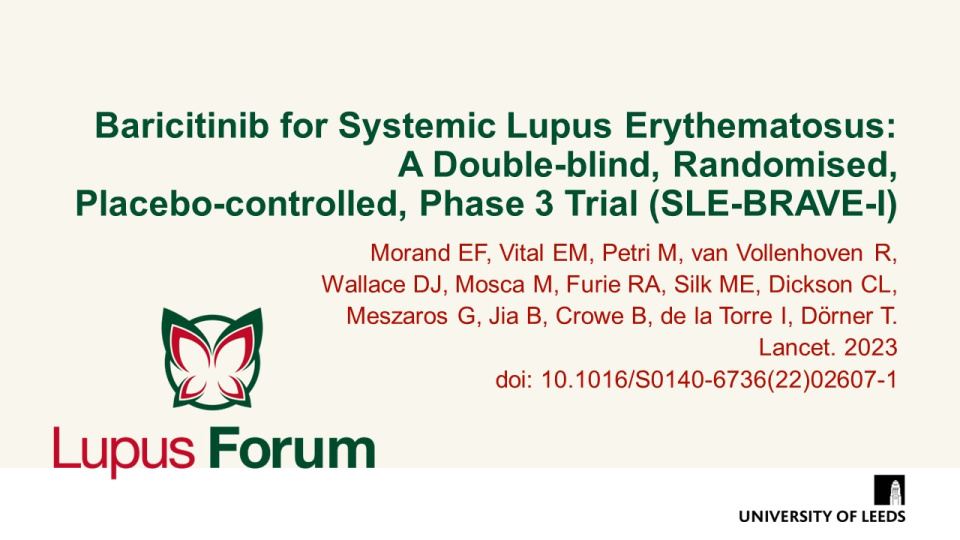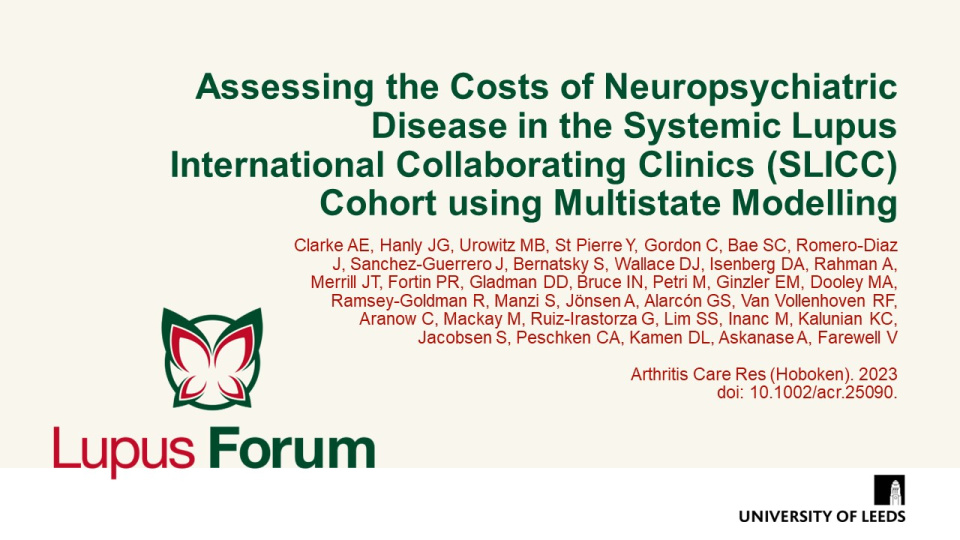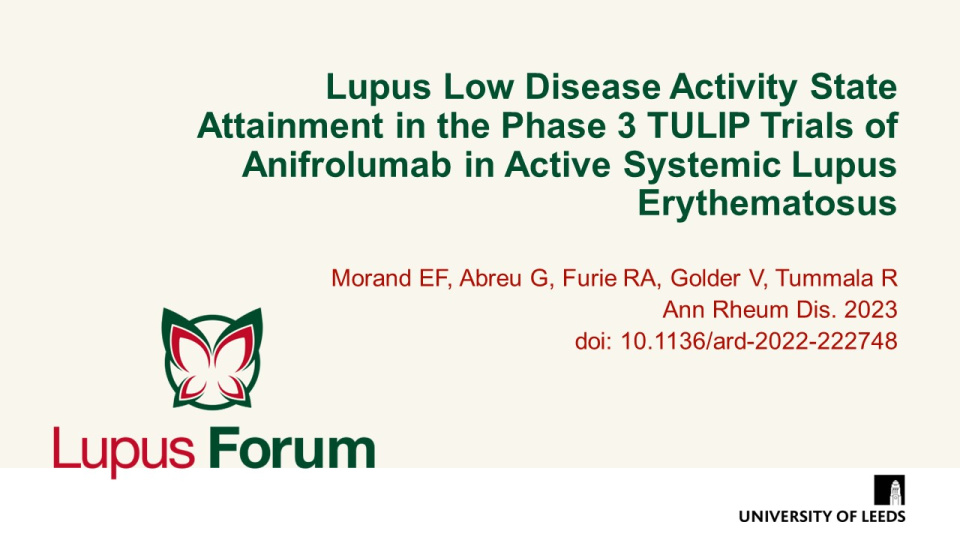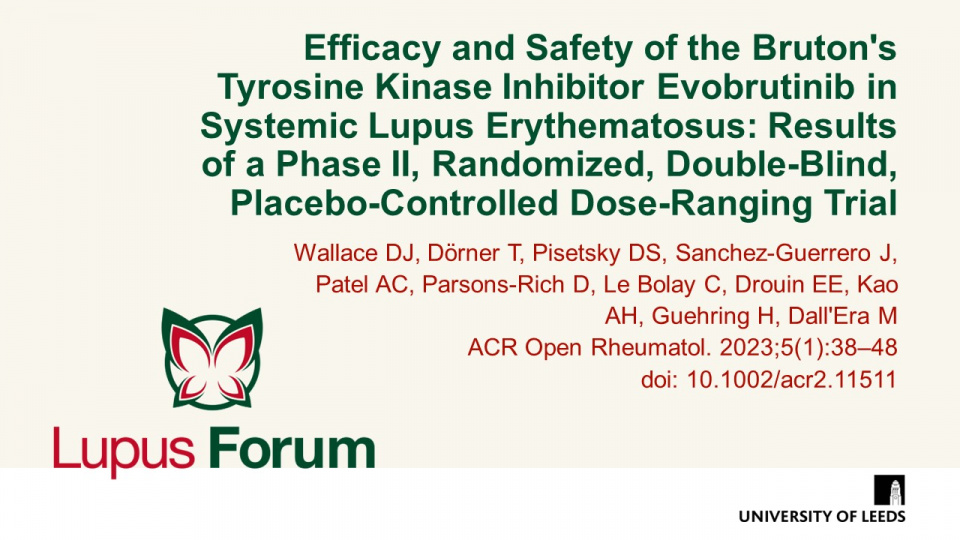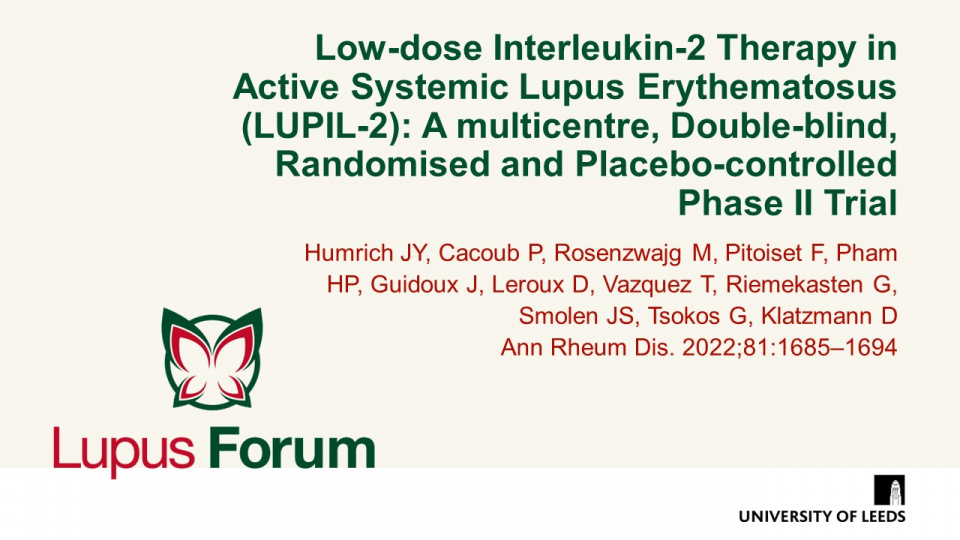Publications
Find coverage of the latest original articles on Lupus, focusing on those with data on therapeutic interventions and those that have clinical impact.
2022 EULAR points to consider for the measurement, reporting and application of IFN-I pathway activation assays in clinical research and practice
Ann Rheum Dis. 2023 doi: 10.1136/ard-2022-223628
The first EULAR-endorsed points to consider (PtC) for the measurement and reporting of IFN-I assays in clinical research and practice are developed.
Keywords:
Baricitinib for Systemic Lupus Erythematosus: a Double-blind, Randomised, Placebo-controlled, Phase 3 trial (SLE-BRAVE-II)
Lancet. 2023 doi: 10.1016/S0140-6736(22)02546-6
Negative results of SLE-BRAVE-II trial show that evidence for the efficacy of baricitinib in SLE is inconclusive.
Baricitinib for Systemic Lupus Erythematosus: a Double-blind, Randomised, Placebo-controlled, Phase 3 Trial (SLE-BRAVE-I)
Lancet. 2023 doi: 10.1016/S0140-6736(22)02607-1
Primary endpoint in SLE-BRAVE-I study was met for the 4 mg baricitinib group, however, key secondary endpoints were not.
Assessing the Costs of Neuropsychiatric Disease in the Systemic Lupus International Collaborating Clinics (SLICC) Cohort using Multistate Modelling
Arthritis Care Res (Hoboken). 2023 doi: 10.1002/acr.25090.
First study to assess the long-term economic burden of neurologic and/or psychiatric (NP) lupus in an international, multi-ethnic inception cohort, concludes that patients with new/ongoing SLE or non-SLE NP events incurred higher direct and indirect costs.
Relationship Between the EULAR/ACR Classification Criteria and Organ Damage in Systemic Lupus Erythematosus
Lupus. 2023. doi: 10.1177/09612033231153791
Ambispective cohort study concludes that, in addition to disease classification, the EULAR/ACR SLE criteria may have value in predicting prognosis.
Keywords:
Lupus Low Disease Activity State Attainment in the Phase 3 TULIP Trials of Anifrolumab in Active Systemic Lupus Erythematosus
Ann Rheum Dis. 2023. doi: 10.1136/ard-2022-222748
Post-hoc anaylsis of TULIP trials shows that, compared with placebo, anifrolumab treatment was associated with earlier, more frequent, and more prolonged and sustained lupus low disease activity state (LLDAS).
New Biologics and Targeted Therapies in Systemic Lupus: From New Molecular Targets to New Indications. A Systematic Review
Joint Bone Spine. 2023.
Systematic review of new biologics and targeted therapies in systemic lupus identifies a highly diversified pipeline of investigational drugs that will hopefully enable a more optimal treat-to-target strategy.
Efficacy and Safety of the Bruton's Tyrosine Kinase Inhibitor Evobrutinib in Systemic Lupus Erythematosus: Results of a Phase II, Randomized, Double-Blind, Placebo-Controlled Dose-Ranging Trial
ACR Open Rheumatol. 2023;5(1):38–48 doi: 10.1002/acr2.11511
Results of a phase II trial of evobrutinib suggest that Bruton's Tyrosine Kinase (BTK) inhibition is not an efficacious therapeutic intervention over standard of care therapy for patients with SLE.
Keywords:
Low-dose Interleukin-2 Therapy in Active Systemic Lupus Erythematosus (LUPIL-2): A Multicentre, Double-blind, Randomised and Placebo-controlled Phase II Trial
Ann Rheum Dis. 2022;81:1685–1694
Phase II proof-of-concept trial confirms that low-dose IL-2 therapy can safely and selectively expand the Treg population, and is capable of reducing disease activity in patients with SLE.
A Randomized, Placebo-Controlled Phase III Extension Trial of the Long-Term Safety and Tolerability of Anifrolumab in Active Systemic Lupus Erythematosus
Arthritis Rheumatol. 2022. Epub ahead of print doi: 10.1002/art.42392
Long-term extension study shows an acceptable long-term safety profile of anifrolumab in SLE, in addition to sustained improvements in disease activity and reduction in glucocorticoid use.


